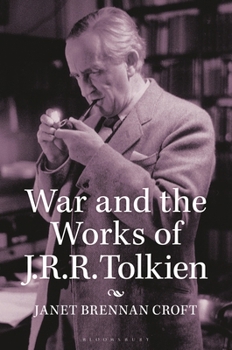War and the Works of J.R.R. Tolkien
Select Format
Select Condition 
Book Overview
J.R.R. Tolkien, one of the world's most beloved authors, was a World War I signaling officer who survived the Battle of the Somme, and two of his sons served during World War II.
Such experiences and events led Tolkien to a complex attitude toward war and military leadership, the themes of which find their way into his most important writings. His fiction, criticism, and letters demonstrate a range of attitudes that would change over the course of his life. In the end, his philosophy on human nature and evil, and the inevitability of conflict, would appear to be pragmatic and rational, if regretful and pessimistic. Croft explores the different aspect of Tolkien's relationship with war both in his life and in his work from the early Book of Lost Tales to his last story Smith of Wootten Major, and concentrating on his greatest and most well-known works The Hobbit and The Lord of the Rings. This valuable consideration of war in the life of Tolkien is essential reading for all readers interested in deepening their understanding of this great writer.Format:Paperback
Language:English
ISBN:B0CQ41C1V6
ISBN13:9798765123317
Release Date:April 2024
Publisher:Bloomsbury Academic
Length:192 Pages
Weight:0.60 lbs.
Dimensions:0.4" x 6.1" x 9.2"
Customer Reviews
0 rating





